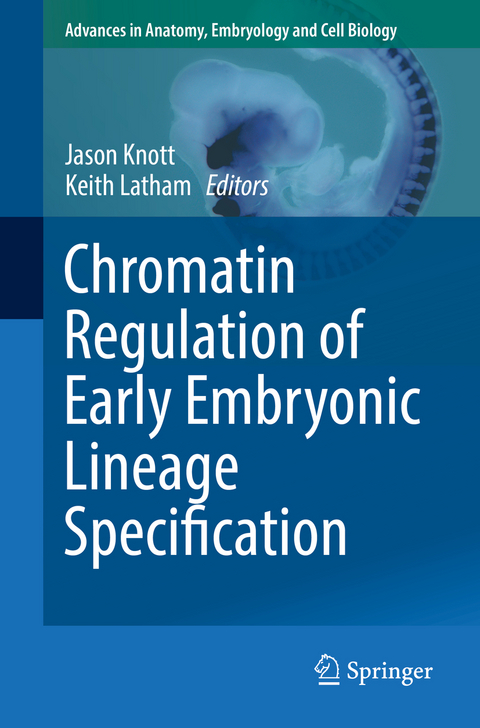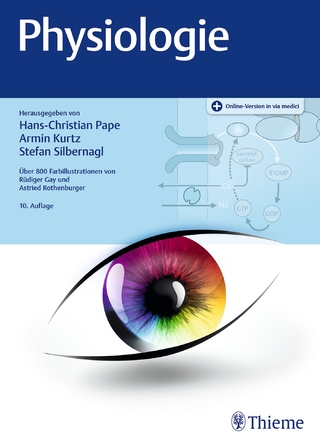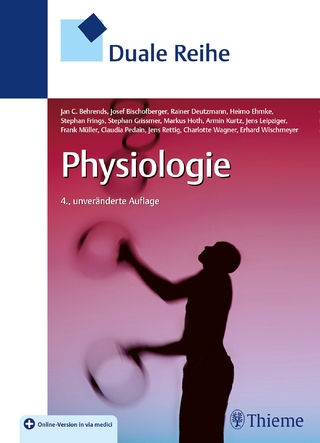
Chromatin Regulation of Early Embryonic Lineage Specification
Springer International Publishing (Verlag)
978-3-319-63186-8 (ISBN)
Dr. Jason Knott is a reproductive and developmental biologist with fifteen years of experience in mammalian embryology and stem cell biology. His research program is focused on elucidating chromatin based mechanisms that regulate gene expression programs and cell-fate determination in preimplantation embryos and embryonic stem cells. His current research focus is on understanding transcriptional and epigenetic mechanisms that govern cell polarity, pluripotency, trophoblast lineage formation, and trophoblast lineage differentiation in mice, humans, and cattle. Dr. Keith Latham is a developmental biologist with nearly three decades of experience in mammalian embryology. His research encompasses epigenetics and imprinting in the early embryo, transcriptional control, translational control, determinants of oocyte quality, and mechanisms underlying meiotic spindle formation and function. His research combines the use of diverse mouse strains, molecular assays applicable to the single cell level, and embryo micromanipulation including different forms of nuclear transfer.
CHD1 controls cell lineage specification through zygotic genome activation.- Chromatin remodelling proteins and cell fate decisions in mammalian preimplantation development.- Transcriptional regulation and genes involved in first lineage specification during preimplantation development.- ROCK and RHO playlist for preimplantation development: Streaming to HIPPO pathway and apicobasal polarity in the first cell differentiation.- XEN and the art of stem cell maintenance - molecular mechanisms maintaining cell fate and self-renewal in extraembryonic endoderm stem (XEN) cell lines.
| Erscheinungsdatum | 23.12.2017 |
|---|---|
| Reihe/Serie | Advances in Anatomy, Embryology and Cell Biology |
| Zusatzinfo | VII, 78 p. 16 illus. in color. |
| Verlagsort | Cham |
| Sprache | englisch |
| Maße | 155 x 235 mm |
| Gewicht | 139 g |
| Themenwelt | Medizin / Pharmazie ► Medizinische Fachgebiete |
| Studium ► 1. Studienabschnitt (Vorklinik) ► Physiologie | |
| Studium ► 2. Studienabschnitt (Klinik) ► Humangenetik | |
| Naturwissenschaften ► Biologie ► Zellbiologie | |
| Schlagworte | Cell Biology • cellular biology (cytology) • CHD1 • CHD4 • embryonic chromatin structure • extraembryonic primitive endoderm • H3R26me • Human genetics • Human Physiology • medical genetics • Medical Research • Medicine • Physiology • pluripotent epiblast • SOX2-DNA |
| ISBN-10 | 3-319-63186-1 / 3319631861 |
| ISBN-13 | 978-3-319-63186-8 / 9783319631868 |
| Zustand | Neuware |
| Haben Sie eine Frage zum Produkt? |
aus dem Bereich


